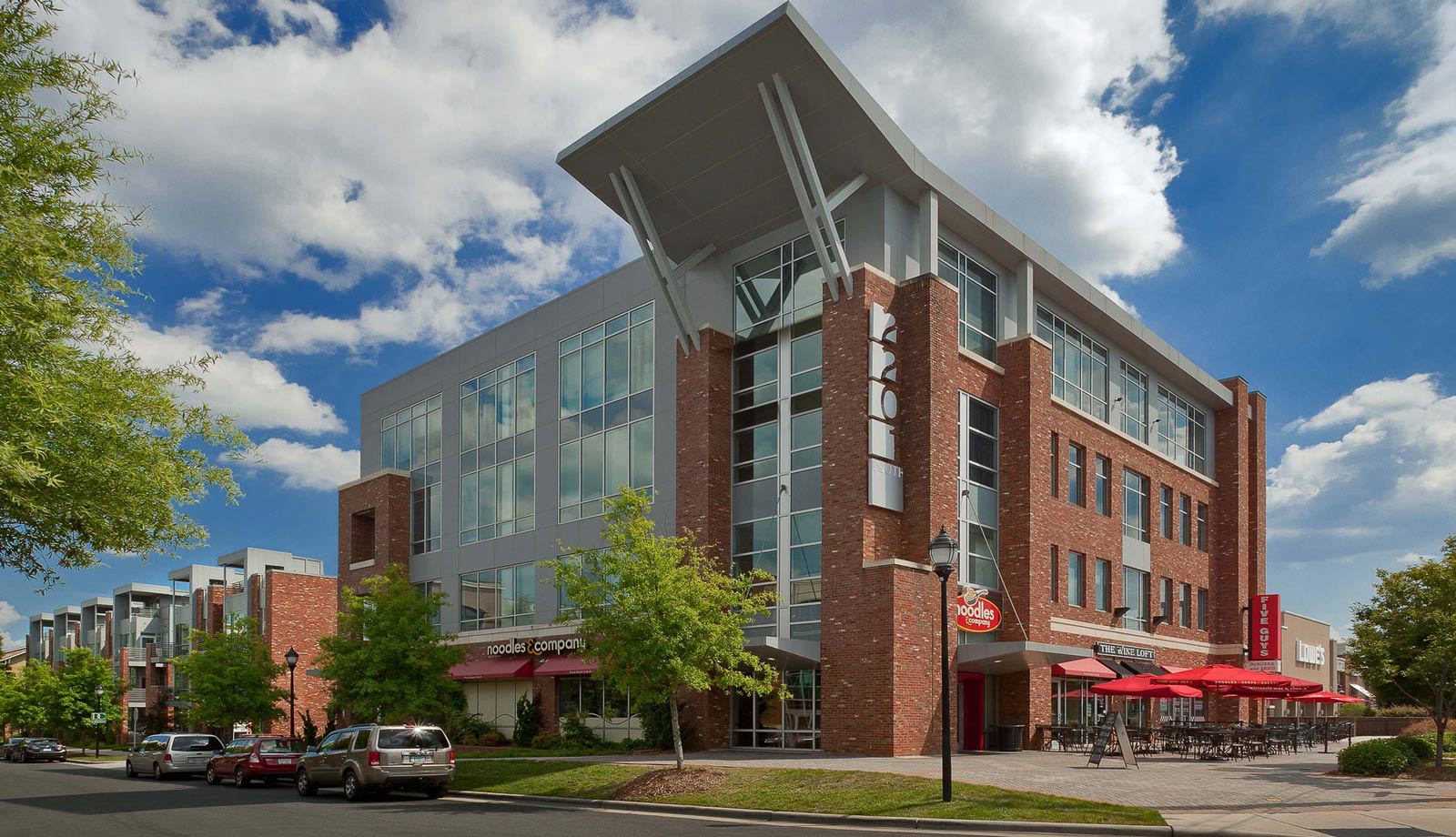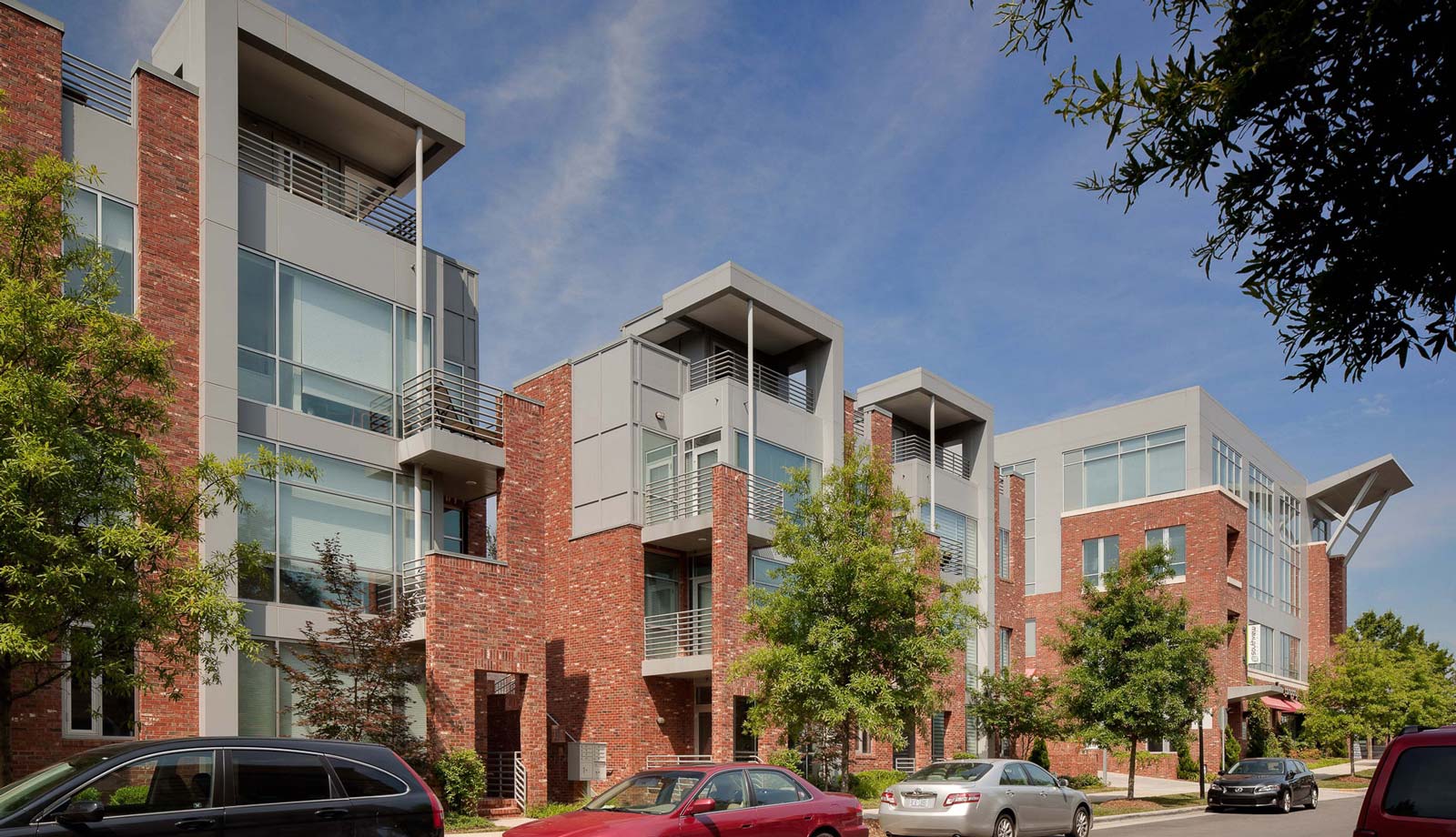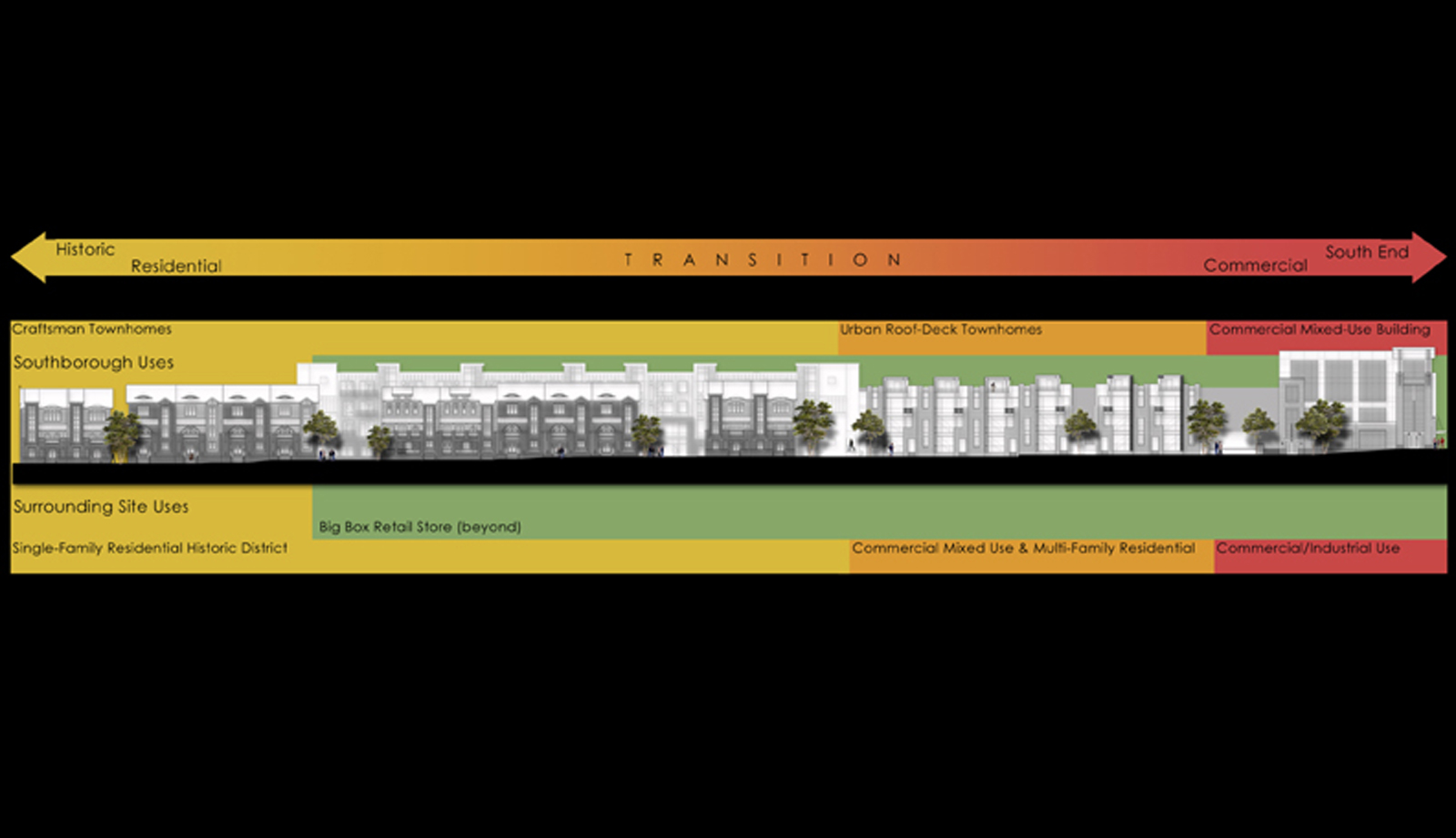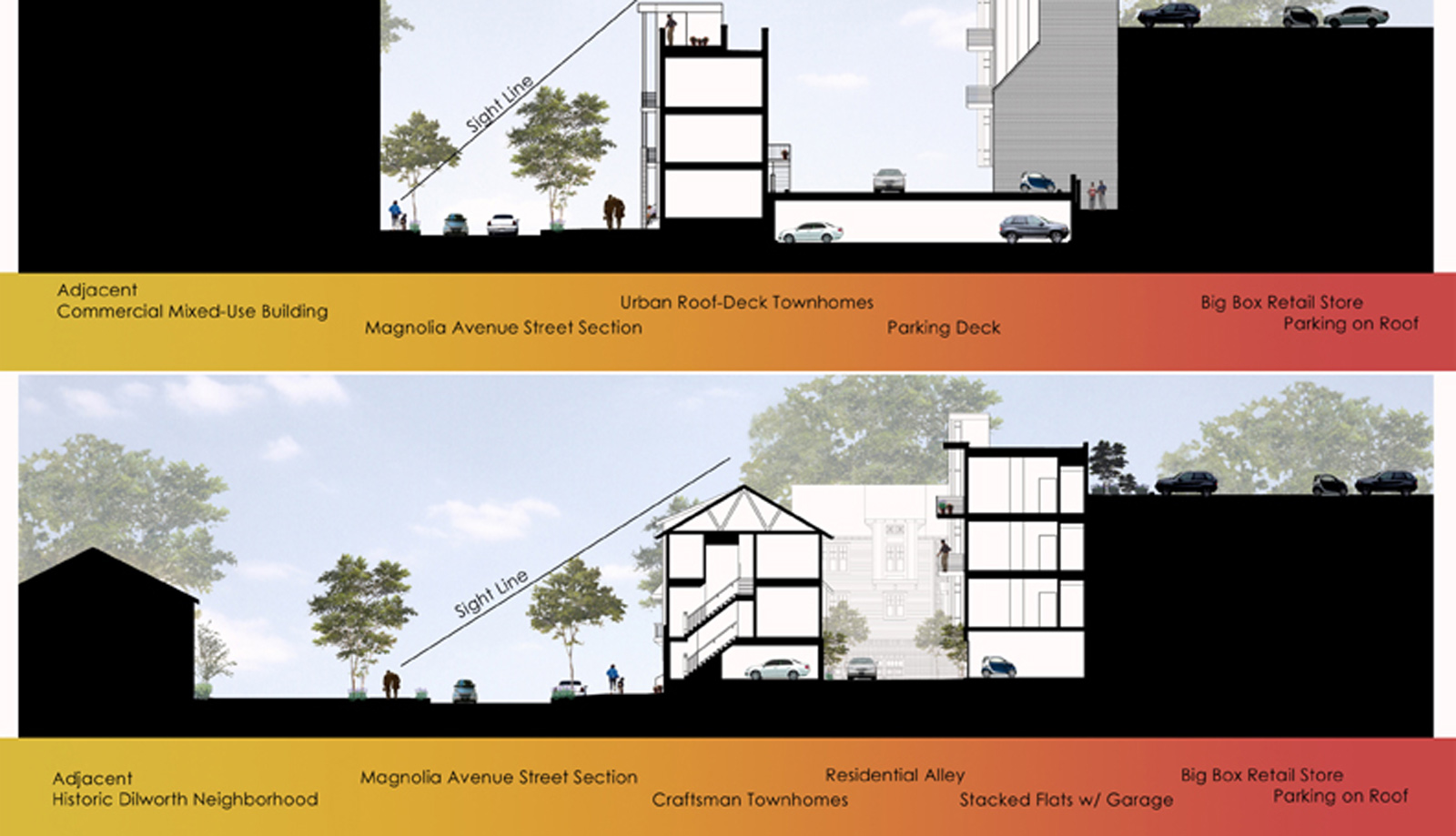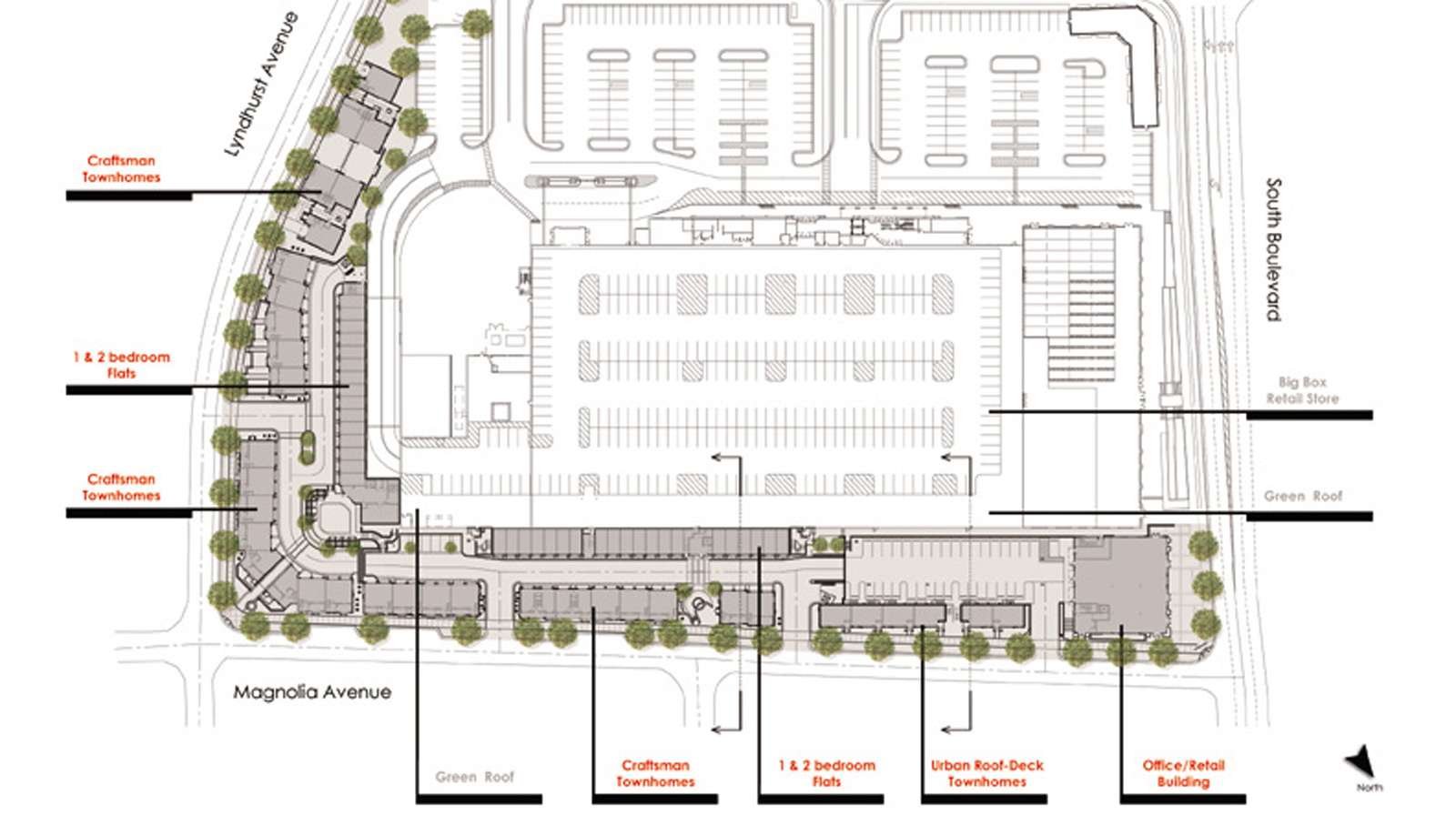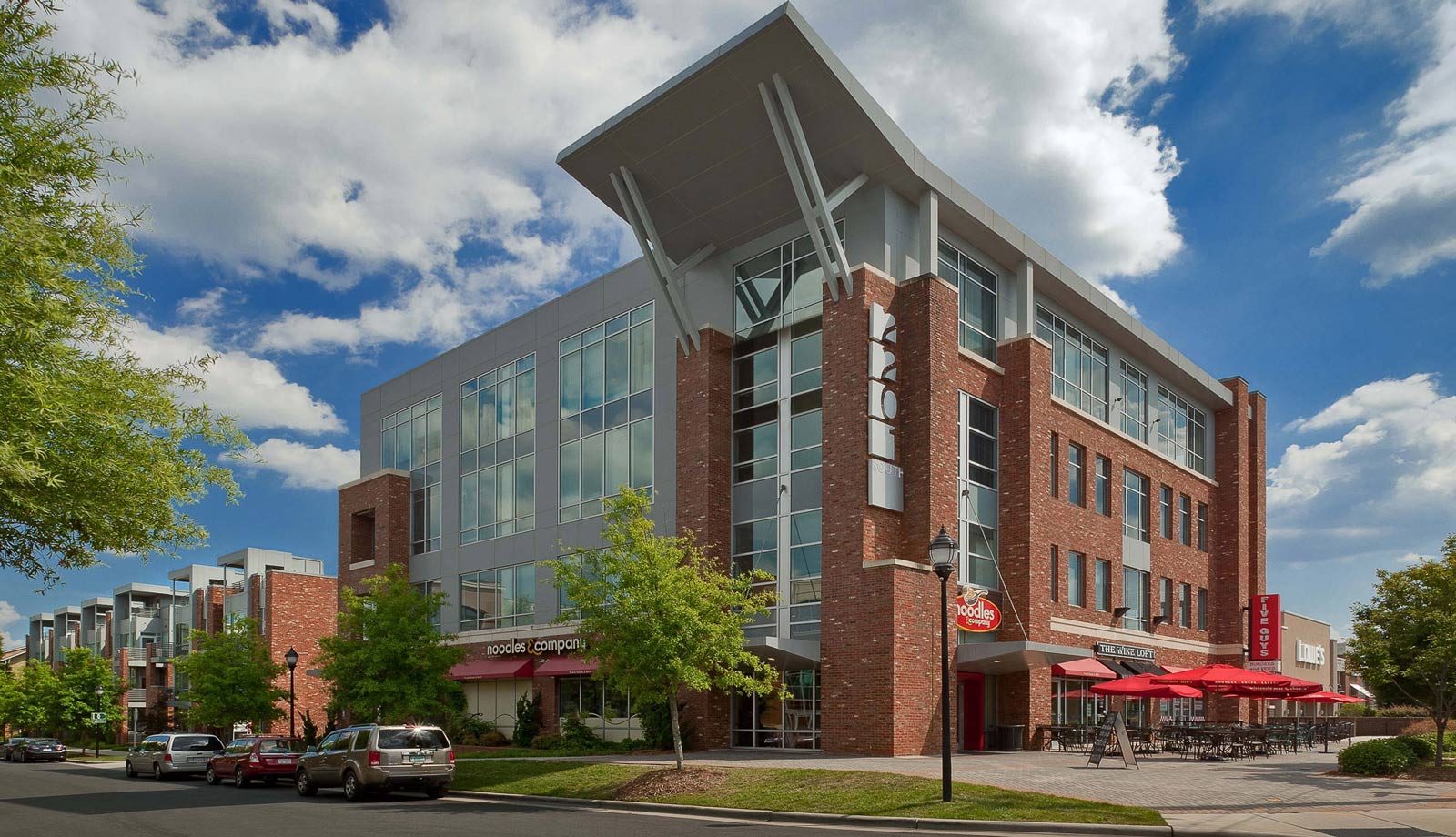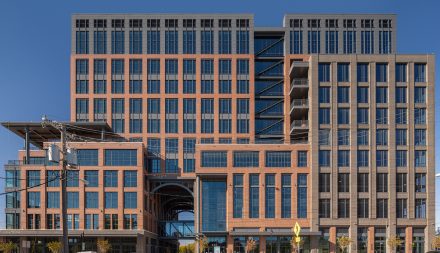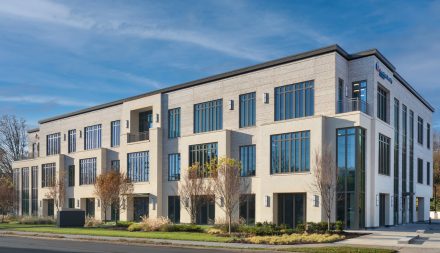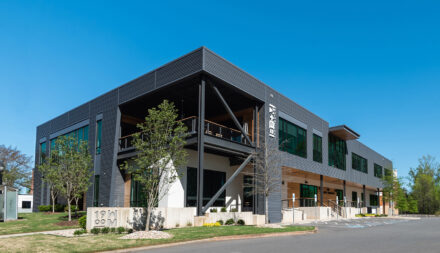Southborough Mixed-Use
Southborough Mixed-Use
Project Details
Featured as the cover story for Multi-Housing News in August of 2012, Southborough is an urban infill mixed use project with the unique mission of masking a big-box home improvement retailer from the adjacent historic single family neighborhood. A narrow strip of property along two sides of the retail structure was sold to the Client for the purposes of developing a mix-use project to achieve this screening. The resulting solution was a product of extensive collaboration between Architect, Land Planners, and the Client in close coordination with the neighborhood association and city planning officials.
Given the renewed desire of large retailers to return to the urban core, this project epitomizes the enormous zoning and design challenges that must be resolved for large commercial infill to coexist with sensitive single family adjacencies. From a sustainability perspective, this solution exemplifies innovative land usage and a reduction in urban sprawl by reclaiming a previously underutilized infill site for a new viable, dense mix of complementary uses along the new South transit corridor.
Architecturally, the solution required thoughtful massing related to the screening requirements as well as care in addressing the transition between a highly commercial South Boulevard frontage and the historic craftsman style vernacular deeper into the block. The screening was achieved by a double row of residential products with a concealed central vehicular access to garage-park both rows. The rear row product is a 4-story contemporary flats building held just 2 inches off of the big box structure completely concealing the big-box rear wall. The street front product is smaller scale craftsman inspired townhouses which addresses the Dilworth Neighborhood. The transition of architectural language from commercial to residential was a critical factor in gaining community support as well as creating a viable multifamily product for the Client. The architecture towards the commercial corridor (implemented in the mixed use building and the townhouses that screen the parking deck) is largely brick and metal inspired by the period warehouses which largely define the Southend commercial district. Moving down Magnolia Avenue, the transition is quickly made to the craftsman style townhouses with period detailing and broad porches in scale with the original single family homes of the adjacent neighborhood.
